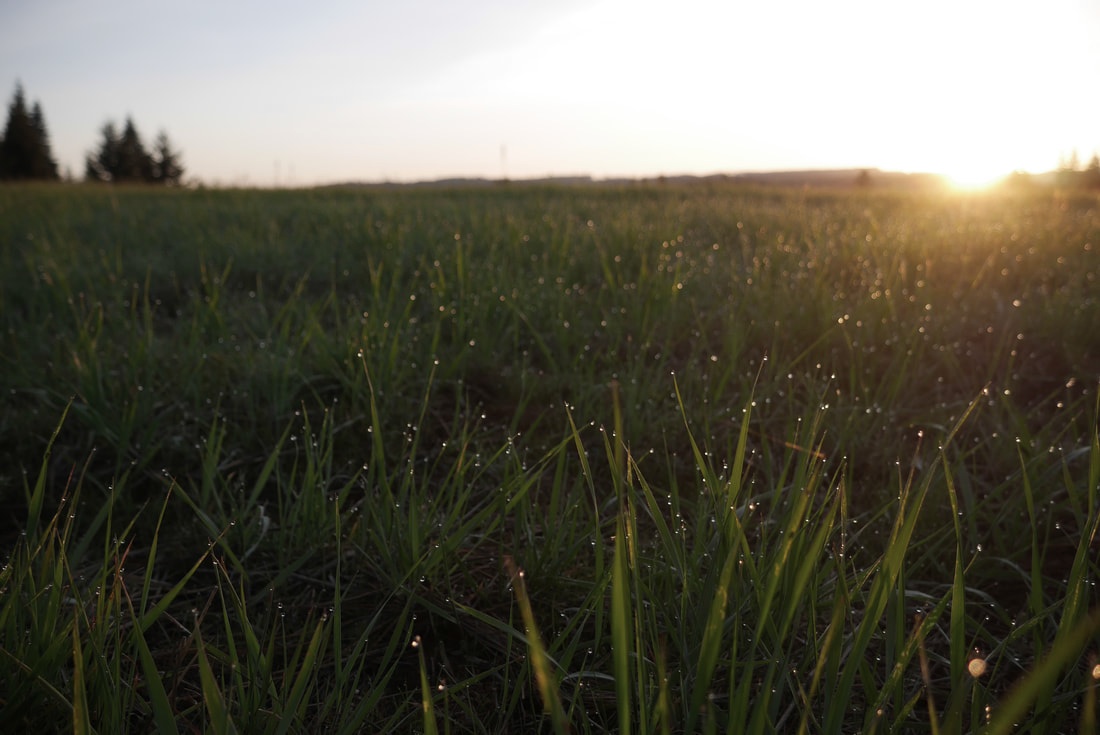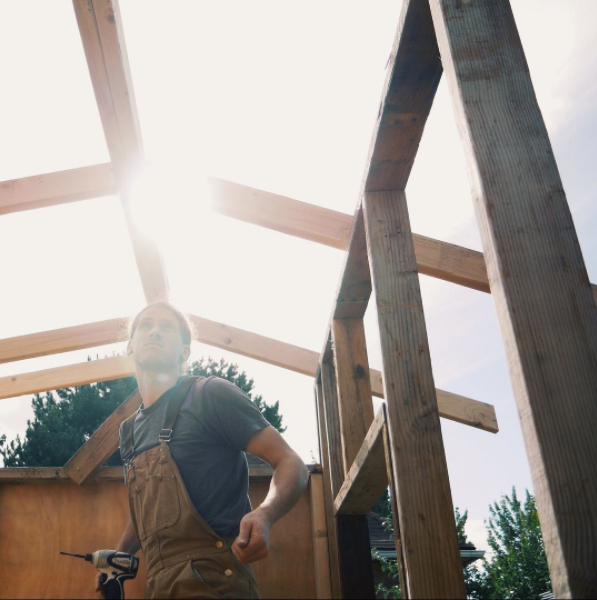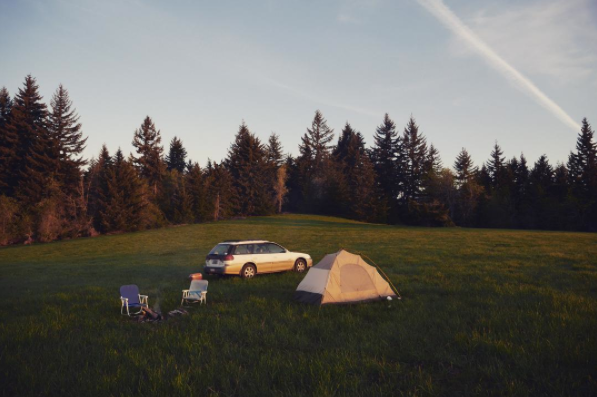|
As I approach my 30's I feel an intense sloughing off of old beliefs and expectations. A lot of people have told me their 30's were their favorite time because they had finally let go of insecurities and pressure from the outside world. They were also young enough to not feel buckets of regret about it.
It is the Sweet Spot. For some. When I'm feeling stressed out it's good for me to evaluate where the expectations are coming from. And on a larger scale, what is my model of the world? What do I believe HAS to happen in order for me to feel fulfilled? In the past I had quite the list: Serve others first and forego my own comfort. Make every action directed toward helping others. Create businesses that help others. Don't follow your dreams because they may not "help others." Push down your desires because they are selfish. Don't be a consumer. Only support local or grow your own food. Share your space, time and money with people who need it. Unfortunately, this list destroyed me. I became burnt out, angry, poor, sick and unfulfilled. I used to watch movies about Saint Francis of Assisi for life inspiration. We had friends who were living on the streets, friends who didn't have food. We were trying to live in solidarity and provide a space for everyone to use at their need. I think a lot of my frustration came when I realized after all those years of "giving" myself, money, time and energy...there was no climax, no thanks...and Johnny and I were left with the realization that we weren't set up for adult life. We had to continue trading our comfort to move forward, to buy our land. And even now, as we approach two years since buying it, we are no where closer to moving. This isn't a pity party. Johnny and I are very good at rising to an occasion and slaying it. We literally dream and scheme every single day. But something needs to change. The tiny house we built wasn't made for the long term...and I still don't have a shower. (haha) You could say, "just move into an apartment." But that feels like a soul crusher to me. Especially since we've been trying to move out of Portland. That would keep us here longer. On the bright side, we have begun allowing ourselves to play and adventure more. We got married as children yet we took on so much crap. We're trying to view this time of life as a re-do of our early 20's. I started Pole Dancing again, Johnny is surfing and snowboarding. I have kept my model of wanting to be of service to other people but now it is in the form of wellness coaching. (Speaking of that! I have a retreat for women coming up in November: Blue Ocean Retreat) Our goal, now, is to not push ourselves toward the property if it's not happening. We've sacrificed a lot of our joy over the years and I don't want to do that again. Money is always the issue, for a lot of us, and we continue to dream up ways of making more and providing more value to people in the process. Ultimately we want to develop the property and provide a space for people to come stay, our intentions are still focused on giving and sharing with others, but at this rate it will be another 5 years. So...we're at a cross road. And we've thrown around a lot of options. No decision has been made but we are always open to taking the ideas and thoughts from others who have experiences to share. My new model: Pursue what brings you joy. When you feel joy you will be more able to give to others. You will be in a resourceful state to solve problems. Don't let "shoulds" rule your life. Life has a way of throwing you curve balls. Live open minded, with and open heart and open hands. Ride the wave. (now that I've surfed I know how intense, scary and epic this really is)
0 Comments
We have big dreams and small means. We dream, we scheme, we tackle everything with more determination than funding. We throw our hands up in surrender EVERY OTHER DAY. We feel hope and hopelessness simultaneously and the weight of modern culture excessively. We continue to learn, grow and inhabit our lives in whatever way we need to in a moment. Sometimes that means sorting through boxes in the basement, reminding us of how little we really need and wondering how it all accumulated in the first place. Sometimes living in the moment means crying, talking to our therapists and allowing ourselves to be upset. Sometimes it means re-focusing our vision, changing our steps and practicing a whole lot of patience.
There are a lot of people who think we already live on the property. A few times a week someone asks me when we're moving. Most recently people have been asking me if our tiny house is on the property. I LOVE that people are interested in what we are doing, but it is a little painful knowing it could be another year or more before that's a reality. We work our asses off and save ferociously but our income does not allow us to move very quickly. For those of you who know our history, we've put a lot of time into building/remodeling at the cost of moving forward into "careers" that make us come alive. This mostly affects Johnny since I don't have many building skills. Besides our financial status we also want to go slow in this process so that Johnny has time to work on the things he cares about. We've been re-building our tiny house in the back yard in order to have a space to ourselves. Our first house was built as a bedroom because we lived with one of my best friends and we didn't mind sharing the main house with her. Things have changed and once again Johnny is building instead of pursuing his passions. That said, as much as we want to move I don't want him to be overwhelmed with yet another building project or obligation. I want him to be free. He has such a beautiful mind and I want to see what he can do! This whole process has felt like layers and layers of planning on a shoestring budget. (check out our blog series: Turning 20 Dollars into 20 Acres) We have a lot of ground to cover before moving. Did you know that drilling a well can cost up to $30,000 or more? Did you know that running electricity is a couple thousand as well as graveling a driveway? Did you know that building a house is a lot of money AND work? Yeah, you know that. So this is why we don't live out there yet. Trust me, we wish we did. So that's where we are at. When we move out there you will know! For now we're trying to enjoy the small moments and keep ourselves sane as we live in the chaos and unknown. I’ve spent most of my life intentionally limiting my vocabulary. I’ve long resisted the use of words found on lists with amortization, refinancing, or debt consolidation. I remember, as a child, hearing my parents use these words. I only knew that they were somehow related to money.
Limiting my use of such words was quite easy. I lacked a working definition for most of them. I didn’t know what they meant and hoped the need would never surface. Despite my long held hopes, I now find myself boring my wife with talk of interest rates, balloon payments, and tax consequences. The bright side of my expanded vocabulary is the twenty acres of land we now own (pay taxes on). Just over three years ago, we returned from two months in South Africa with $20 to our name and a pocketful of Swazi coins. Our journey from there to paying property taxes began with a major shift in my attitude toward money. If money were a river, it would arguably be the largest, strongest one in our society. My past relationship to money can be equated to a child trying to dam that river by stacking rocks gathered from the bank. I didn’t like the way that river was flowing and I managed only a meager effort to resist it. Many things I have learned have led me to a different approach. Continuing with the metaphor, I now take a "mill" approach. Instead of resisting the flow via dam, I seek to redirect a small part of it to accomplish some good in the way a mill uses flowing water to grind flour or cut lumber. The first step in my transition from dam to mill was acquiring a credit card. I became convinced that borrowing money might be helpful in accomplishing our goals. Anyone who would lend us a substantial sum of money would likely want to take a look at your credit score. One’s credit score is based on one’s involvement in what amounts to a game, the rules to which have been arbitrarily established by the agencies that issue the scores. You, like me, might think that having never needed to borrow money would work in your favor when you finally do. I can tell you for certain that is not true. To learn the rules of this game, have a look HERE. Until acquiring a mortgage, a credit card was our sole tactic in establishing and improving our credit scores. The reason being that it offered us multiple benefits without us having to alter our spending habits. I’ll describe the benefits later. As a side note, I should mention the head start that Bailey had in regard to her credit score. In high school she carried around a credit card associated with an account on which her mom was the principal cardholder. Bailey’s use of the card was limited to emergencies, while her mom used it more often. Over time, the responsible maintenance of a low balance on the account allowed Bailey’s credit score to rise with no effort on her part. Additionally, after high school, Bailey’s parents took out small student loans in her name that they quickly paid off. High fives to my in-laws. I would encourage all parents to investigate ways they can help give their children’s credit a kick-start. Like Bailey’s parents, if you find yourself able to maintain a credit balance low enough to positively impact a credit score, consider adding your child as an authorized user. Having said that, some parents should spare their children any association with their credit history. Having no credit history myself, and very little income, our first card came with a $250 limit. An all out shopping spree would have been manageable. The card was used for routine purchases, such as groceries. We were careful to pay our bill on time and never carried a balance. The next chapter in our credit saga began when I became officially employed. Until starting as a barista at Stumptown Coffee, I had pulled in enough income through working odd jobs. Living in the area where I had grown up offered the advantage of a large network of family and friends. Among this network I sought out most of my work. While not lucrative, I did gain a lot of skills. At times I would put an ad on Craigslist, offering my services as a handyman. I once had a man hire me to install siding on his house. While I stood looking at the house, trying to imagine the scope of a job I had never even attempted, he asked, “You ever do siding before?” “Never”, I replied honestly. “You’ll figure it out.” Transitioning to more a conventional form of employment, in addition to putting us above the poverty line for the first time, allowed us to secure a more beneficial line of credit. After thoroughly researching the options, I settled on the Barclay Arrival Card. For those who are interested, I’ll describe some of the reasons behind that decision. Bonus: For spending at least $3000 in the first 90 days, were able to accumulate $400 in reward points per card. As we each had our own card, we found ourselves with $800 in points. Because there are some large expenses, such as rent, which you can’t usually pay with a credit card, the frugal among you may find it difficult to spend the amount necessary to get the bonus points. Some creativity may be required. Flexibility: You’ve probably heard credit rewards referred to as miles. I’m not sure how rewards came to so intimately connected with travel. Even the card we chose offers superior benefits when redeemed for travel related expenditures. With that fact in mind, we chose the card we did because it was not connected to any one particular airline or hotel chain. While I don’t have any experience with it, I have read that the rewards offered by cards connected as such, can be quite difficult to redeem. Apparently, airlines will limit the dates and number of seats available on a given flight to travelers using rewards. In the case of the rewards offered by our card, they are applied after the fact as a credit on our bill. Thus, we are free to make any purchase we want, and redeem our reward points when we pay our bill. But, as I alluded to before, our reward points are worth twice as much when redeemed for travel related purchases. With that in mind, we have found creative ways to maximize those benefits. For example, Bailey rented a cabin for the weekend to act as the setting for a nutrition workshop she hosted. Because vacation rentals are travel related, we were able to cover that entire portion of the workshop expenses with reward points. Rate of Reward: At 2% (when redeemed for travel related purchases) the card we chose offers one of the highest rates of reward I could find. On top of that, when redeemed for travel related purchases, we get 10% of our points back. There are many websites that highlight and compare the available cards. One such website is nerdwallet.com. A simple search will lead you to the others. No matter what your goals, improving your credit score is probably a worthwhile endeavor. For more information along these lines, I recommend the first chapter of Ramit Sethi’s book “I Will Teach You To Be Rich” called “Optimize Your Credit Cards.” It can be read for free HERE. I like the subtitle to the chapter: how to beat the credit card companies at their own game. Thus far, we have accumulated over $1,500 in reward points and not paid a single cent of interest. We're definitely ahead in the game at this point. Keep an eye out for part two. There I will tell the story of how we managed to save $50,000 in three years. -Johnny Read Part Two HERE. |
Details
Bailey Patrice & Jonathan DavidCategories
All
Date
December 2017
|




